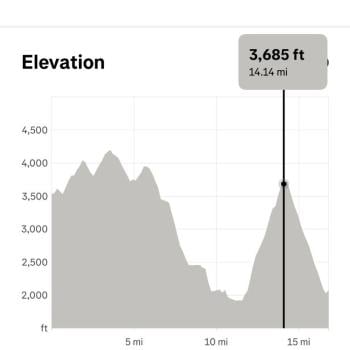There are many guides to help us in our spiritual journeys. This week, I want to consider Alcoholics Anonymous (AA) and their 12-step philosophy and its practical application to our spiritual journey.
Alcoholics Anonymous
Alcoholics Anonymous was founded in America in 1935 by Bill Wilson and Robert Smith. Both were self-identified alcoholics and indeed met or meet the criteria for alcohol use disorder. In England, the Oxford Group predated the American Alcoholics Anonymous. The Oxford Group was a Christian fellowship group stated by an American Christian missionary Frank Buchman. After a conversion experience in 1908, he would found a movement known as the Oxford Group in 1928.
As a mental health clinician, I have been around AA all my adult life. We are often required to go to several meetings over the course of our educational career and subsequently work with AA concepts with our clients in sessions afterwards. I do not identify as an alcoholic, I enjoy a glass of whiskey, wine, or beer on occasion, but do not overindulge. I have been to probably a dozen meetings over the years, and each one has taught me something about fellowship, devotion to a higher power, failure and ultimately resiliency and recovery.
What the 12 Steps Can Teach Us
I spend some time as a clinician working with clients on spiritual wounding and negative religious residue and trauma from bad theology and oppressive orthodoxy. Deconstruction is all the rage right now, but often what I see as missing are solid steps into rebuilding our faith to propel us to spiritual maturity. I feel that the 12 steps can be a guide. Here are few thoughts, it is not exhaustive, as this could easily be a lengthy paper, and we do not have time for that.
Admitting Powerlessness
Whether I am reflecting on Stoicism, the Indic philosophies or Jesus’ challenge to not worry, admitting powerlessness is and can be a cathartic process. The Buddhists tell us that we suffer because we cling. Realizing and admitting the futility of control, we become free. It puts a new spin on the truth sets you free. The truth here is that there is no truth, there is no control, there is just life and there is just living.
Admitting our powerlessness cultivates humility. It is a cornerstone of spiritual maturity and helps us see beyond our ego. It helps us actualize our limitations.
Belief in a Higher Power
I remember the conversation like it was yesterday. It is January 1998. I am on a mission trip to New York City, staying in a homeless shelter. I am having a conversation with a man who is a member of the community. They followed a 12-step curriculum, and he was trying to convince me his higher power was a toaster.
If you ask me why I am still a Christian and why I still believe in God, I can’t give you a theological answer. I think for me, God transcends the definable. God for me is a transrational being. My belief in God is experientially based.
Believing in a higher power for support instills a sense of trust. It can foster a deep sense of connection and purpose. Paul Tillich “suggested that God be understood as the “ground of Being-Itself.” He felt that, since one cannot deny that there is being (where we and our world exist), there is therefore a Power of Being. He saw God as the ground upon which all beings exist. As such, God precedes “being itself” and God is manifested in the structure of beings.”
Self-Examination, Admitting faults, and Readiness to Remove Defects
Sometimes I get a client who comes to my office for therapy who was either told they had to go by a spouse or by a parent. Often, this person really does not want to be sitting across for me and will on occasion verbalize not knowing why they are in my office. Sometimes, I get “my wife said I should go, it will help with our marriage.” All of these people are in what we call in the Transtheoretical Model of Change, the Precontemplation stage of change.
In behavioral work, when a noxious behavior is identified, one of my criteria for triaging the severity of the behavior is “is it annoying to the people around the client or the clients’ friends and family?” or “Is there a chance of danger?”(Self harm, bodily harm, violence, suicidal ideation, property damage).
I tell my clients, admitting we have a problem is the first step, which is also taken from AA. But there is a deeper spiritual practice here, learning how to be humble. Confronting our ignorance and questing daily for deeper knowledge of self and the world around us. In this deeper of cultivating humility, we can recognize our flaws and our virtues. In doing so, we deepen our understanding of ourselves. In this, we continue to tread on the path towards spiritual maturity.
Asking a Higher Power to Remove Shortcomings
It is felt that this step is in alignment with submitting to the higher power. Opening my prayers from the Benedictine Daily office are these words: “O God, make speed to save us. O Lord, make haste to help us.” Before getting out of my car for the last 15 years, I have uttered these words, “Come Holy Spirit, move through my day and help me be an instrument of peace. Also, in my thoughts are “not my will Lord, but
yours.” Coming into our day humbly emphasizes our willingness to be open to our
vulnerabilities and ignorances. It emphasizes our humility and aides us on the continuous journey of becoming better versions of ourselves.
Too Much to Think About
I have only scratched a tiny amount of the surface of where we could go reflecting on the 12 Steps. This may be my first two-part post. With the 12 steps of the Alcoholics Anonymous, we not only have a powerful tool for healing and breaking the bondage of addiction, but we have powerful guide to lead us on our spiritual path.













